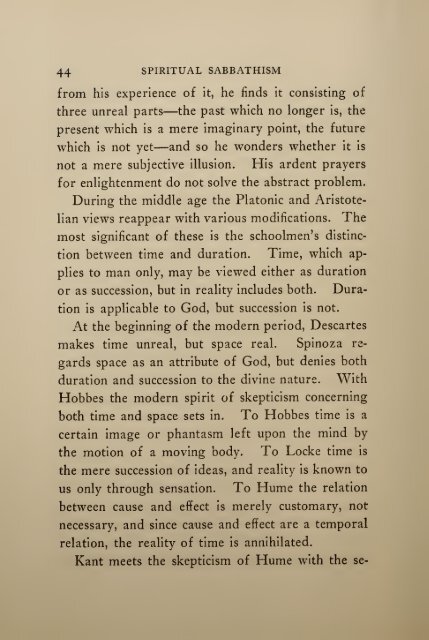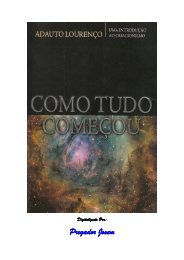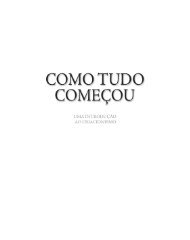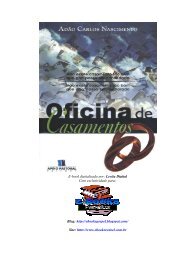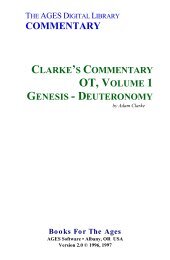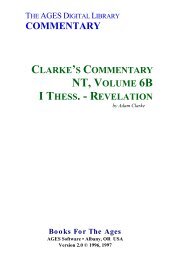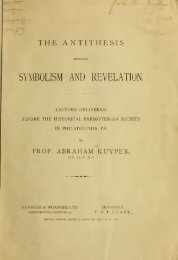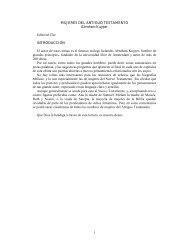Abram Herbert Lewis - Spiritual Sabbathism
You also want an ePaper? Increase the reach of your titles
YUMPU automatically turns print PDFs into web optimized ePapers that Google loves.
44 SPIRITUAL SABBATHISM<br />
from his experience of it, he finds it consisting of<br />
three unreal parts—the past which no longer is, the<br />
present which is a mere imaginary point, the future<br />
which is not yet—and so he wonders whether it is<br />
not a mere subjective illusion. His ardent prayers<br />
for enlightenment do not solve the abstract problem.<br />
During the middle age the Platonic and Aristotelian<br />
views reappear with various modifications.<br />
The<br />
most significant of these is the schoolmen's distinction<br />
between time and duration. Time, which applies<br />
to man only, may be viewed either as duration<br />
or as succession, but in reality includes both. Duration<br />
is applicable to God, but succession is not.<br />
At the beginning of the modern period, Descartes<br />
makes time unreal, but space real. Spinoza regards<br />
space as an attribute of God, but denies both<br />
With<br />
duration and succession to the divine nature.<br />
Hobbes the modern spirit<br />
of skepticism concerning<br />
both time and space sets in. To Hobbes time is a<br />
certain image or phantasm left upon the mind by<br />
the motion of a moving body. To Locke time is<br />
the mere succession of ideas, and reality is known to<br />
us only through sensation.<br />
To Hume the relation<br />
between cause and effect is merely customary, not<br />
necessary, and since cause and effect are a temporal<br />
relation, the reahty of time is annihilated.<br />
Kant meets the skepticism of Hume with the se-


